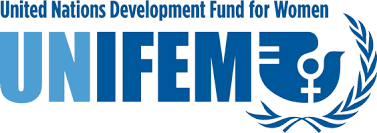Location
The United Nations Development Fund for Women, commonly known as UNIFEM (from the French "Fonds de développement des Nations unies pour la femme") was established in December 1976 originally as the Voluntary Fund for the United Nations Decade for Women in the International Women's Year. Since 1976 it has supported women’s empowerment and gender equality through its programme offices and links with women’s organizations in the major regions of the world. Its work on gender responsive budgets began in 1996 in Southern Africa and has expanded to include East Africa, Southeast Asia, South Asia, Central America and the Andean region. It has worked to increase awareness throughout the UN system of gender responsive budgets as a tool to strengthen economic governance in all countries.
In January 2011, UNIFEM was merged into UN Women, a composite entity of the UN, with International Research and Training Institute for the Advancement of Women (INSTRAW), Office of the Special Adviser on Gender Issues (OSAGI), and Division for the Advancement of Women (DAW).
Members:
Resources
Displaying 6 - 9 of 9Combating desertification. Sustainable management of marginal drylands(SUMAMAD). Proceedings of the Second International Workshop, Shiraz, Islamic Republic of Iran 29 November – 2 December 2003
As marginal drylands, all project sites share similar environmental constraints such as recurrent droughts,
water shortages, shallow soils and the threat of land degradation. As they occur in different economic,
political, social and cultural environments, it will be interesting to address similar bio-physical problems
from different perspectives stemming from varying anthropogenic factors. More importantly, the
Women's land and property rights in situations of conflict and reconstruction
Despite advances in the international rights regime, persistent discrimination evident in the customary laws which regulate women's status in most traditional societies was a constant factor across cultural, social and political divides. The case-histories and testimonies recorded by the Kigali Consultation provide an insight into changes in land and inheritance rights brought about by conflict and its attendant social disruptions.
Women’s Property Rights in three East African Countries
Examines women’s land and property rights in Kenya, Sudan and Ethiopia. Considers the legal and other impediments hindering these rights in situations of conflict and reconstruction. Outlines the practical problems faced by women in connection with the legal and traditional structures regarding land and property rights, and makes some suggestions about how the situation can be rectified.
A Gender Analysis of recent South African Land Reform
Includes background, tenure arrangements, women and land tenure, customary marriages, the land issue after apartheid, criticisms of the legislation, the relationship of land legislation to customary law, recommendations.




